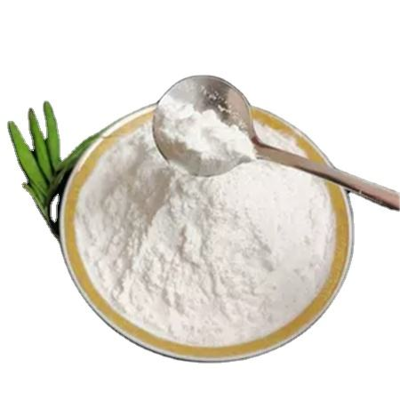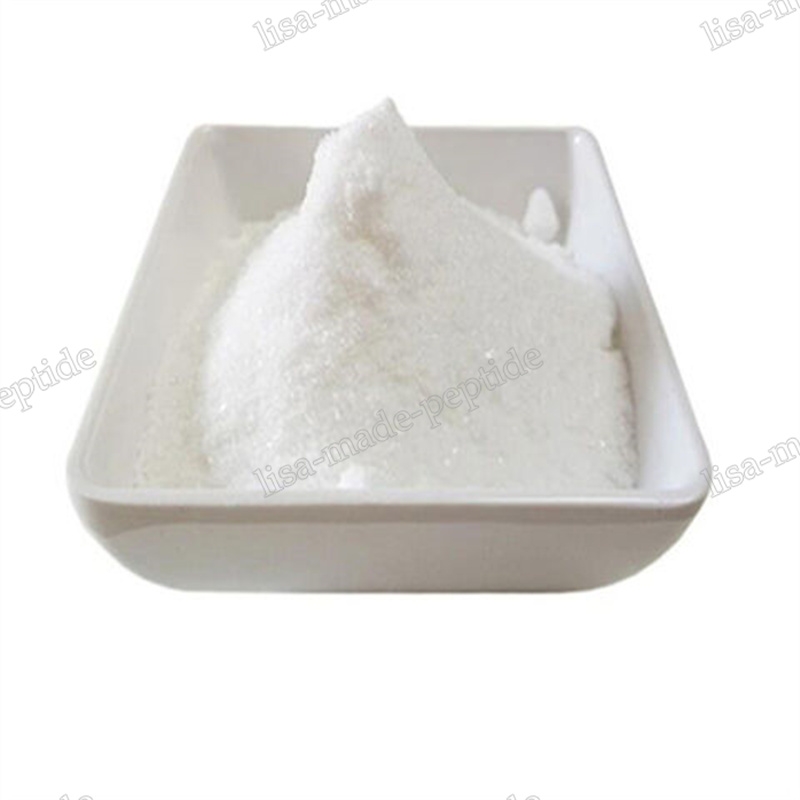-
Categories
-
Pharmaceutical Intermediates
-
Active Pharmaceutical Ingredients
-
Food Additives
- Industrial Coatings
- Agrochemicals
- Dyes and Pigments
- Surfactant
- Flavors and Fragrances
- Chemical Reagents
- Catalyst and Auxiliary
- Natural Products
- Inorganic Chemistry
-
Organic Chemistry
-
Biochemical Engineering
- Analytical Chemistry
-
Cosmetic Ingredient
- Water Treatment Chemical
-
Pharmaceutical Intermediates
Promotion
ECHEMI Mall
Wholesale
Weekly Price
Exhibition
News
-
Trade Service
[ Policies and Regulations of Chemical Machinery Equipment Network ] It is understood that there are currently more than 10,000 manufacturing enterprises engaged in waste plastic processing in China, and these enterprises have also exposed some problems in the process of rapid development.
The overall scale of the recycled plastics industry is large, the number of small businesses is large, and the scale of the business is small.
Most of them are self-employed in the family workshop; the technology development and application ability is weak, the technology is backward, the equipment level is low, and the resource utilization rate is low; the environmental protection awareness is weak and existing Secondary pollution harms the environment.
Chemical Machinery and Equipment Network Policies and Regulations Chemical Machinery and EquipmentThe overall scale of the recycled plastics industry is large, the number of small businesses is large, and the scale of the business is small.
Most of them are self-employed in the family workshop; the technology development and application ability is weak, the technology is backward, the equipment level is low, and the resource utilization rate is low; the environmental protection awareness is weak and existing Secondary pollution harms the environment.
Regarding the recycling and recycling of waste plastics, my country has successively introduced various relevant policies:
Regarding the recycling and recycling of waste plastics, my country has successively introduced various relevant policies:In 2007, the state* issued the "Technical Specification for Pollution Control of Waste Plastic Recycling and Recycling (Trial) HJ/T 364-2007", which stipulates the pollution control and control of waste plastics recycling, storage, transportation, pretreatment, and recycling processes.
The requirements of environmental protection supervision and management apply to the recycling and recycling of various waste plastics, including imported waste plastics, and do not apply to waste plastics belonging to medical waste and hazardous waste.
The requirements of environmental protection supervision and management apply to the recycling and recycling of various waste plastics, including imported waste plastics, and do not apply to waste plastics belonging to medical waste and hazardous waste.
In 2012, the Environmental Protection, Development and Reform Commission, * issued the "Regulations on the Prevention and Control of Pollution from the Processing and Utilization of Waste Plastics.
The “Regulations” clarify that the processing and utilization of waste plastics must comply with relevant national industrial policies and regulations and the “Technical Specifications for Pollution Control of Waste Plastics Recycling and Recycling” to prevent secondary pollution; waste plastics processing and utilization units should treat waste plastics processing in an environmentally sound manner Residual garbage and filters generated during the utilization process shall not be handed over to units or individuals that do not meet environmental protection requirements for disposal; imported waste plastic processing and utilization enterprises shall comply with the "Solid Waste Import Management Measures" and * regarding the import of solid waste and waste that can be used as raw materials.
Relevant regulations on plastic environmental protection management; imported waste plastic processing and utilization enterprises that find imported waste plastics that are prohibited by the country or that do not meet environmental protection control standards should immediately report to the port customs, inspection and quarantine departments and local environmental protection departments and cooperate with them Processing work; waste plastic processing and utilization distribution centers should establish a centralized recycling and treatment mechanism for residual garbage and filters generated by retail waste plastic processing and utilization; provincial environmental protection and commerce departments should organize verification and publish a list of qualified waste plastic processing and utilization enterprises; check and verify If problems are discovered, they shall be dealt with in accordance with the law and the results of the treatment shall be announced to the public; enterprises that have not passed the environmental protection inspection shall not be approved to import waste plastics.
The “Regulations” clarify that the processing and utilization of waste plastics must comply with relevant national industrial policies and regulations and the “Technical Specifications for Pollution Control of Waste Plastics Recycling and Recycling” to prevent secondary pollution; waste plastics processing and utilization units should treat waste plastics processing in an environmentally sound manner Residual garbage and filters generated during the utilization process shall not be handed over to units or individuals that do not meet environmental protection requirements for disposal; imported waste plastic processing and utilization enterprises shall comply with the "Solid Waste Import Management Measures" and * regarding the import of solid waste and waste that can be used as raw materials.
Relevant regulations on plastic environmental protection management; imported waste plastic processing and utilization enterprises that find imported waste plastics that are prohibited by the country or that do not meet environmental protection control standards should immediately report to the port customs, inspection and quarantine departments and local environmental protection departments and cooperate with them Processing work; waste plastic processing and utilization distribution centers should establish a centralized recycling and treatment mechanism for residual garbage and filters generated by retail waste plastic processing and utilization; provincial environmental protection and commerce departments should organize verification and publish a list of qualified waste plastic processing and utilization enterprises; check and verify If problems are discovered, they shall be dealt with in accordance with the law and the results of the treatment shall be announced to the public; enterprises that have not passed the environmental protection inspection shall not be approved to import waste plastics.
In 2015, * released the "Beijing-Tianjin-Hebei and Surrounding Regions Industrial Resource Comprehensive Utilization Industry Coordinated Development Action Plan", focusing on optimizing and integrating existing renewable resource industrial parks and distribution centers, improving the level of comprehensive environmental pollution management, exerting resource scale effects, and undertaking Beijing-Tianjin Transfer of renewable resource processing and utilization projects, gather domestic renewable resources, increase the proportion of renewable resource utilization, promote energy saving and consumption reduction, and improve the regional ecological environment.
In 2015, * released the "Technical Specifications for Recycling and Sorting of Waste Plastics" (SB/T 11149-2015), which stipulated the terms and definitions, general requirements, recycling requirements, sorting requirements, transportation and storage requirements, Management requirements, standards apply to the entire process of waste plastic recycling and sorting, and can be used for the supervision and management of domestic waste plastic recycling and sorting operators.
In 2015,* issued the "Regulations for the Comprehensive Utilization of Waste Plastics Industry", which stipulated the establishment and layout of enterprises, the scale of production and operation, the comprehensive utilization of resources and energy consumption, processes and equipment, environmental protection, fire safety, product quality and vocational training, Safety production and supervision and management.
The normative conditions apply to enterprises in the comprehensive utilization of waste plastics within the territory of the People's Republic of China (except for Taiwan, Hong Kong, and Macau).
The normative conditions apply to enterprises in the comprehensive utilization of waste plastics within the territory of the People's Republic of China (except for Taiwan, Hong Kong, and Macau).
In 2016, * released the "Opinions on Promoting the Transformation and Upgrading of the Renewable Resource Recovery Industry" to encourage the research and development of renewable resource recovery, sorting, and processing equipment, and provide an overall solution for the sorting and processing of renewable resources.
Encourage the introduction of modern, automated, and intelligent technology and equipment, improve the scientific and refined level of sorting and processing, promote the full connection with the production and waste links, and realize the effective connection with the utilization link.
Encourage the introduction of modern, automated, and intelligent technology and equipment, improve the scientific and refined level of sorting and processing, promote the full connection with the production and waste links, and realize the effective connection with the utilization link.
In 2017, * released the "Work Plan for Clean-up and Rectification of Recycling Industries such as Electronic Waste, Waste Tires, Waste Plastics, Waste Clothes, and Dismantling of Waste Home Appliances", requiring that a number of illegal recycling companies with serious pollution should be banned in accordance with the law; focus on processing and utilization distribution centers ; Standardize and guide the healthy development of a batch of recycling enterprises.
Improve the infrastructure for the recycling and utilization of renewable resources, promote relevant enterprises to adopt the most suitable processing technology, agglomerate development, and concentrate on the construction and operation of pollution control facilities; encourage legal and compliant recycling enterprises to combine, reorganize, and become bigger and stronger.
Improve the infrastructure for the recycling and utilization of renewable resources, promote relevant enterprises to adopt the most suitable processing technology, agglomerate development, and concentrate on the construction and operation of pollution control facilities; encourage legal and compliant recycling enterprises to combine, reorganize, and become bigger and stronger.
In 2019, the country* and China* issued the "Technical Specifications for the Recycling and Utilization of Waste Plastics GB/T37821-2019", which stipulates the crushing requirements, cleaning requirements, drying requirements, sorting requirements, granulation and modification requirements, and resources of waste plastics.
Comprehensive utilization and energy consumption requirements, environmental protection requirements, suitable for including polyethylene (PE) plastic, polypropylene (PP) plastic, polystyrene (PS) plastic, acrylonitrile-butadiene-styrene (ABS) plastic, The recycling process of waste plastics including polyvinyl chloride (PVC) plastics and polyethylene terephthalate (PET) plastics is not applicable to the recycling of waste plastics listed in the National Hazardous Waste List.
Comprehensive utilization and energy consumption requirements, environmental protection requirements, suitable for including polyethylene (PE) plastic, polypropylene (PP) plastic, polystyrene (PS) plastic, acrylonitrile-butadiene-styrene (ABS) plastic, The recycling process of waste plastics including polyvinyl chloride (PVC) plastics and polyethylene terephthalate (PET) plastics is not applicable to the recycling of waste plastics listed in the National Hazardous Waste List.
In 2020, the National Development and Reform Commission* issued the "Opinions on Further Strengthening the Treatment of Plastic Pollution (Fagaihuanzi [2020] No.
80)" to regulate the recycling and disposal of plastic waste, strengthen plastic waste and removal, and promote resources Utilization of chemical energy.
80)" to regulate the recycling and disposal of plastic waste, strengthen plastic waste and removal, and promote resources Utilization of chemical energy.
In 2020, the National Development and Reform Commission, * and other eight departments issued the "Implementation Plan on Further Strengthening the Treatment of Plastic Pollution (Ji Fa Gai Huan Zi ([2020) No.
1016)", focusing on the implementation of key areas and standardizing the collection of plastic waste And disposal; local housing and urban-rural construction departments should combine the implementation of domestic waste classification, and increase the efforts in the classified collection and disposal of plastic waste.
1016)", focusing on the implementation of key areas and standardizing the collection of plastic waste And disposal; local housing and urban-rural construction departments should combine the implementation of domestic waste classification, and increase the efforts in the classified collection and disposal of plastic waste.
This article is compiled and published by Plastic Machinery Network.
Some sources of information: countries *, *, *, *, etc.
Please contact us if you have any infringements or objections.
plastic robot Some sources of information: countries *, *, *, *, etc.
Please contact us if you have any infringements or objections.
Original title: Inventory: Relevant requirements for the recycling and recycling of waste plastics in my country in recent years







